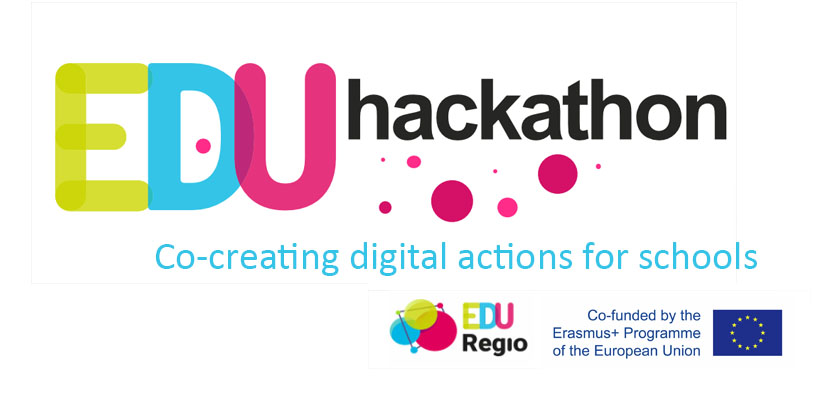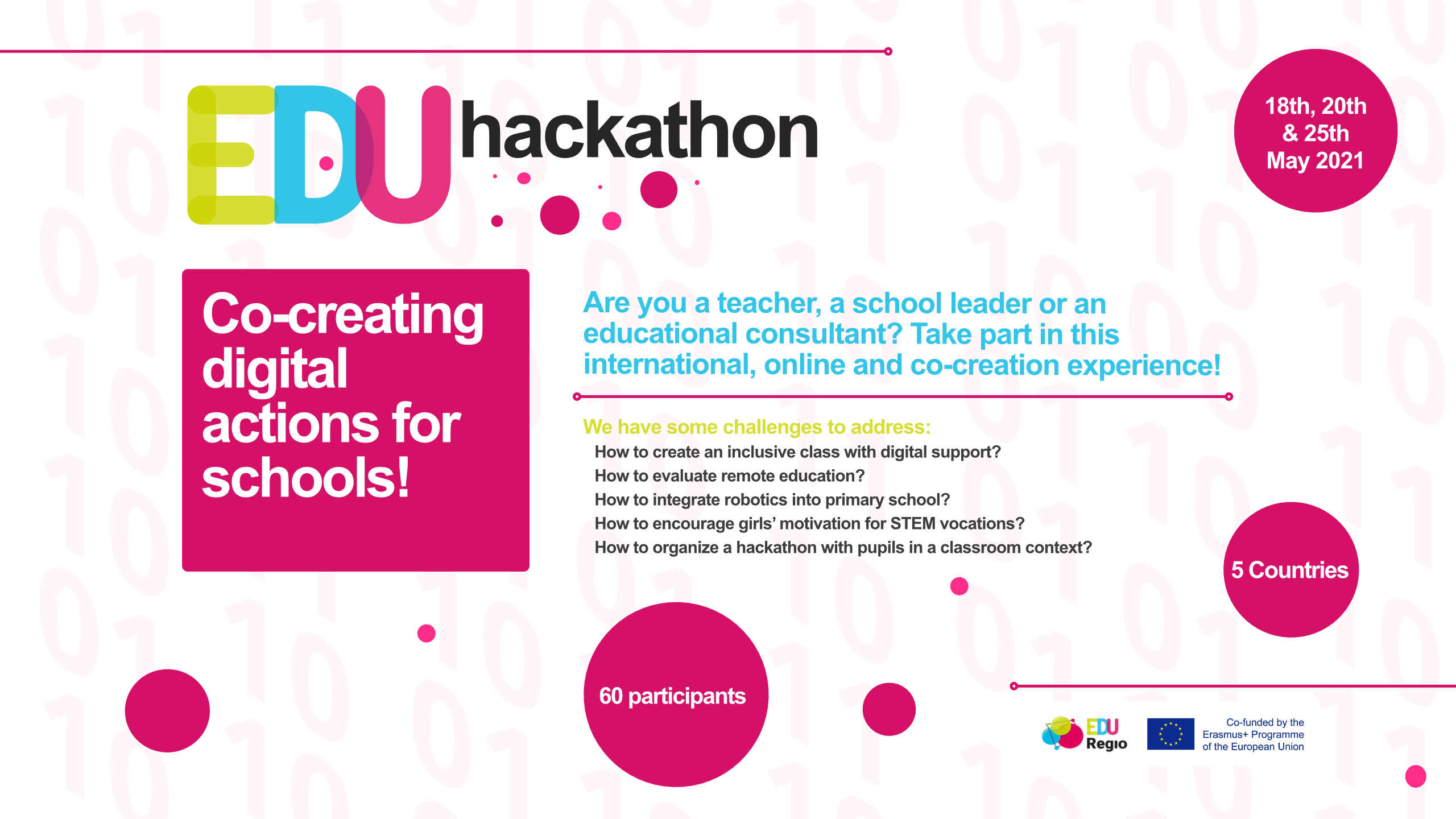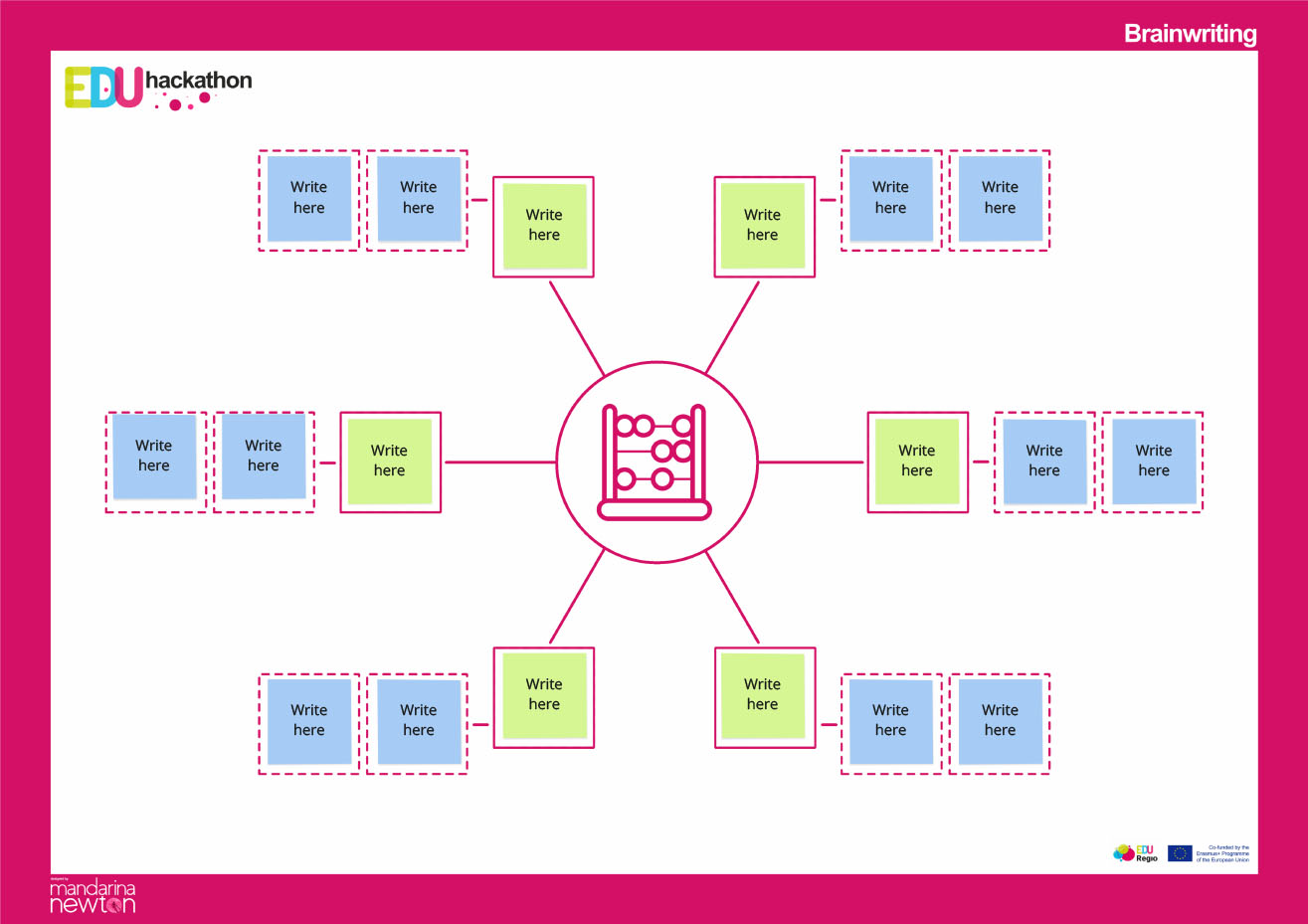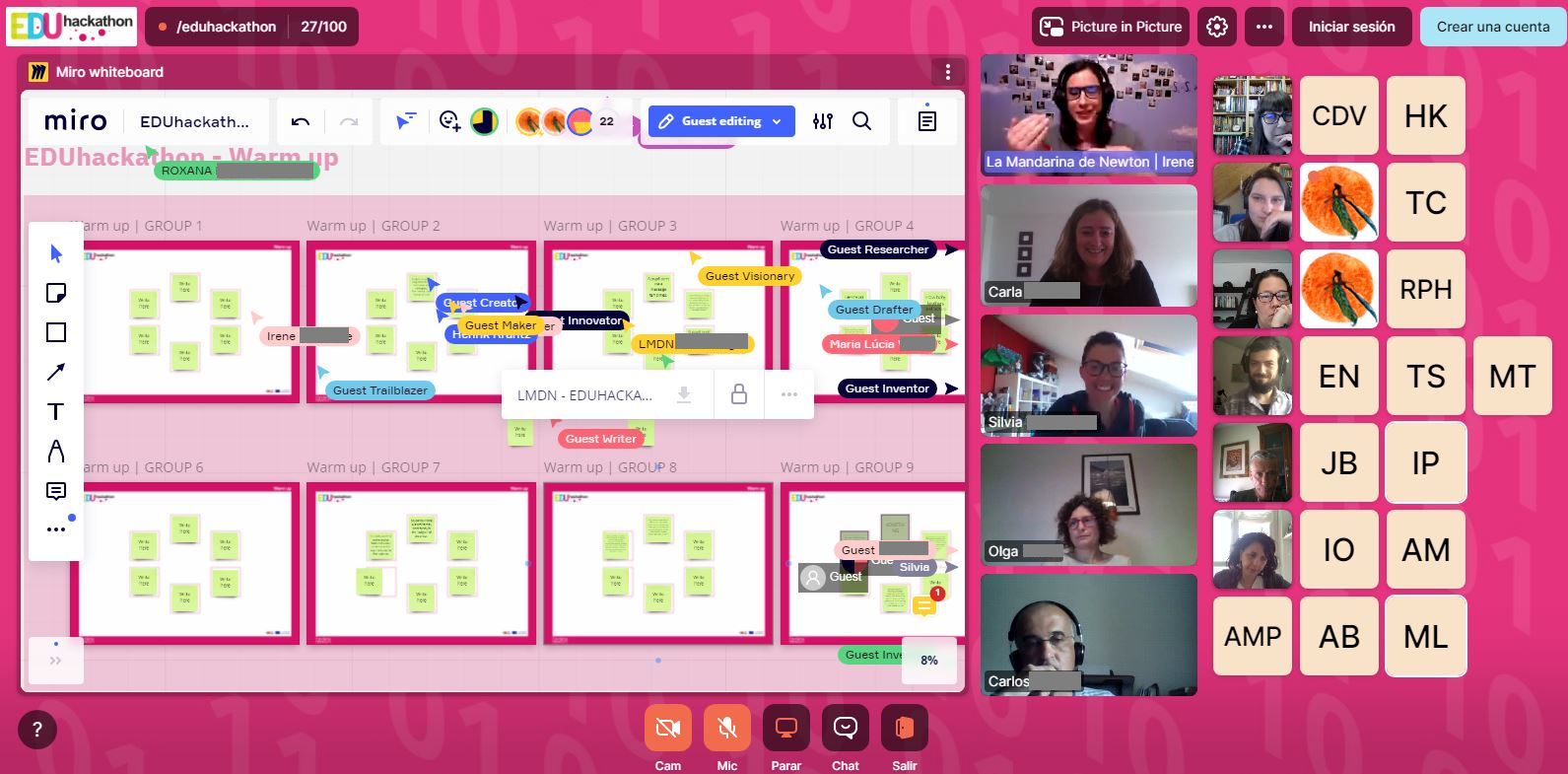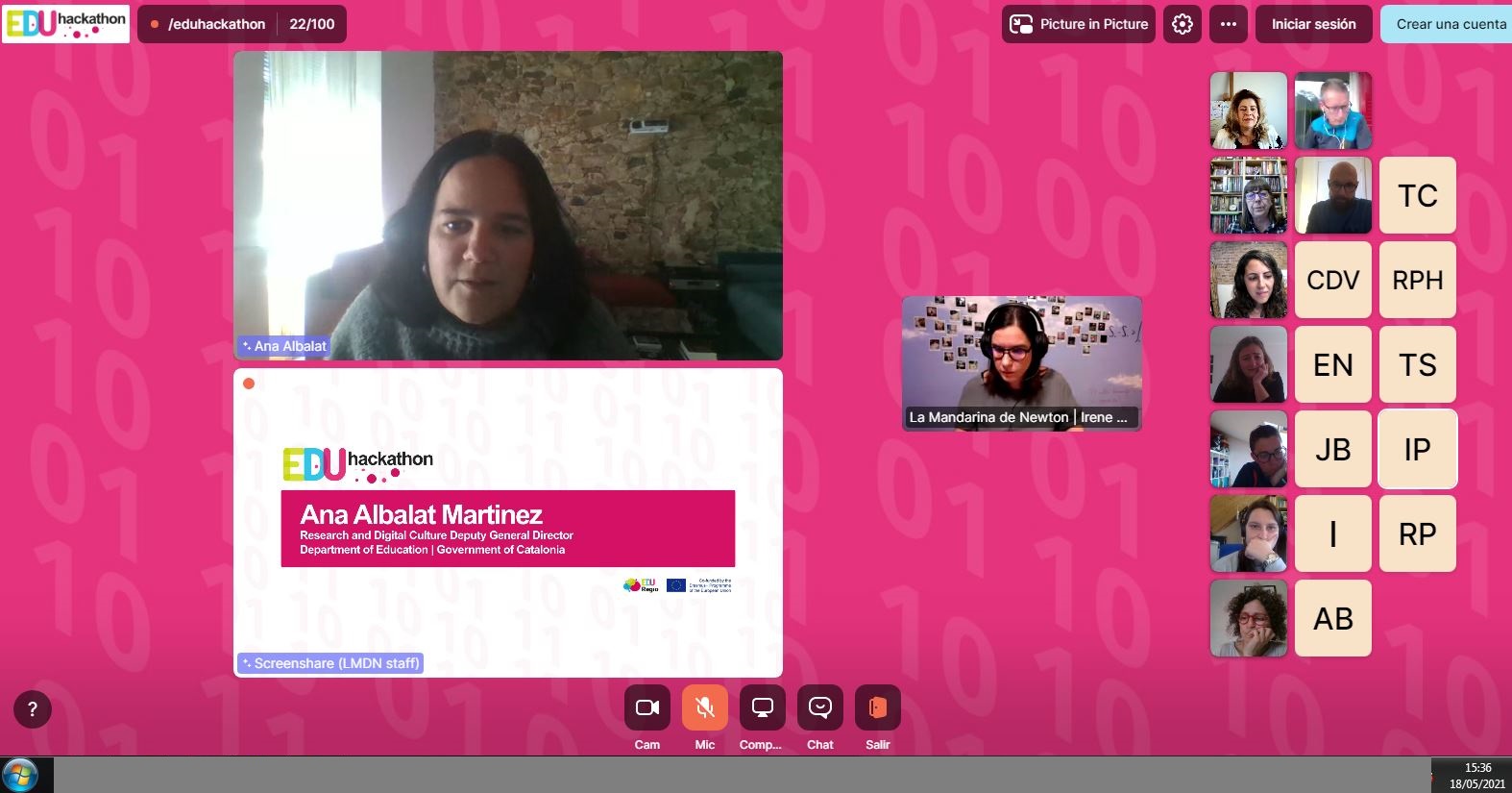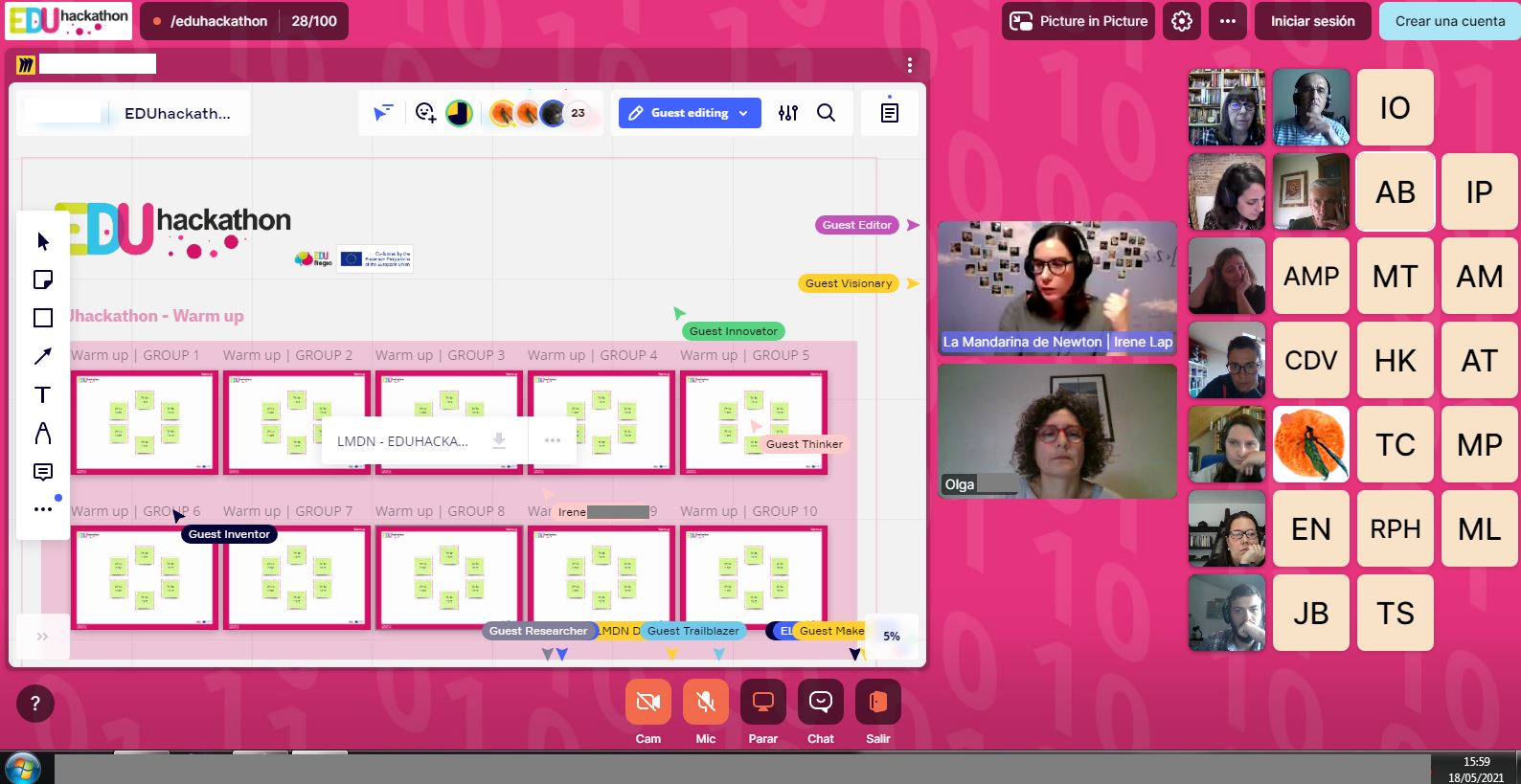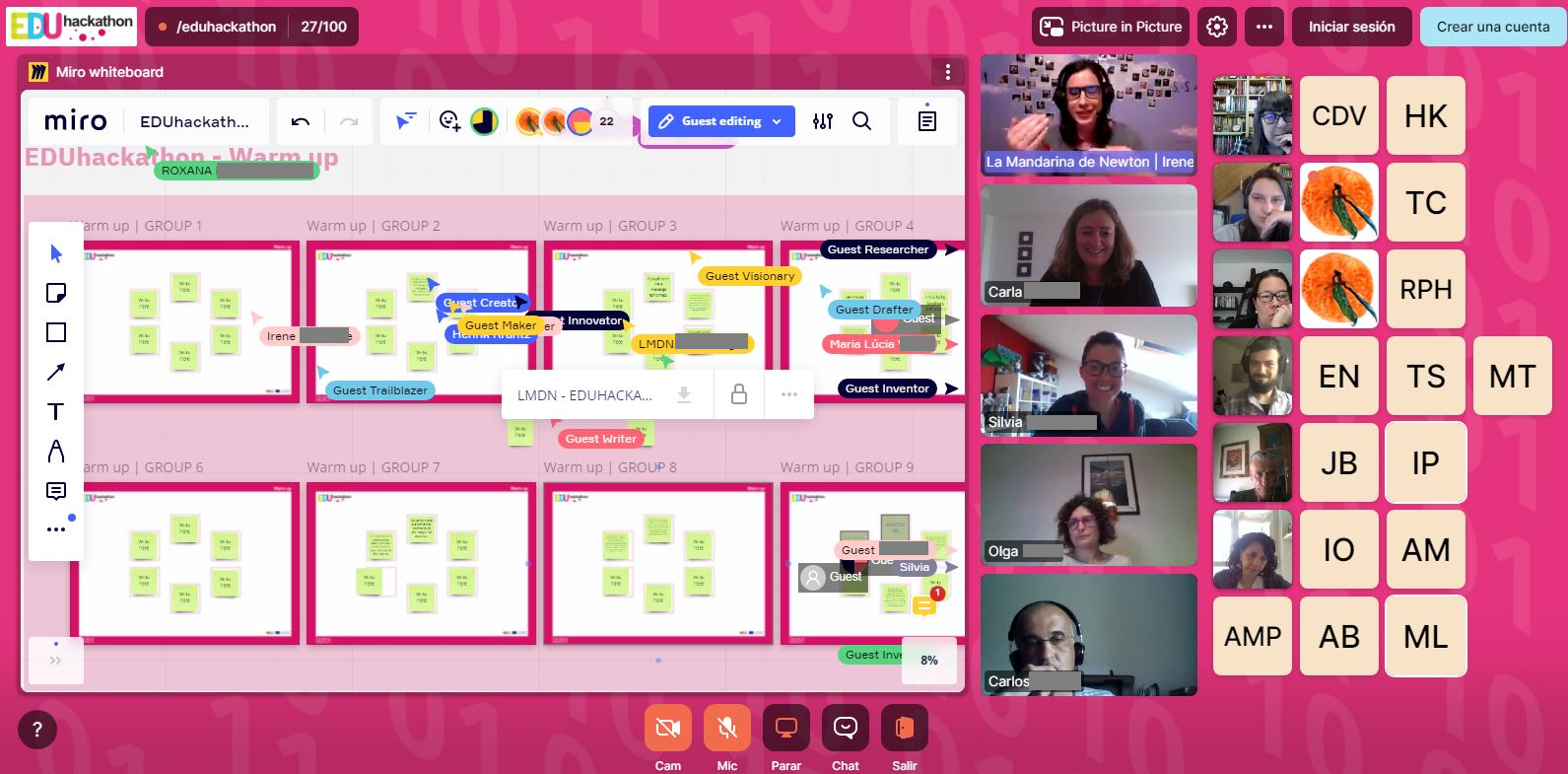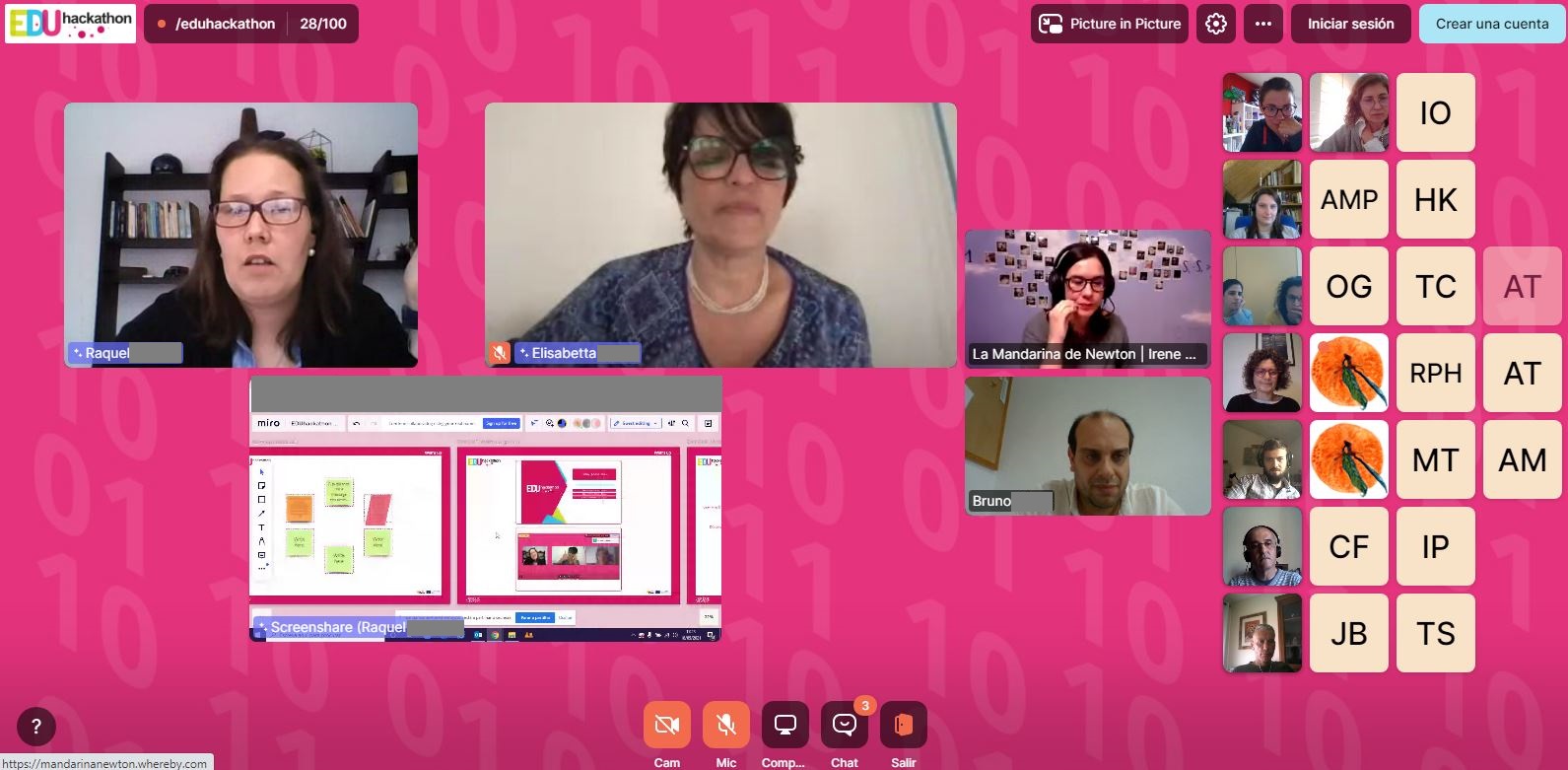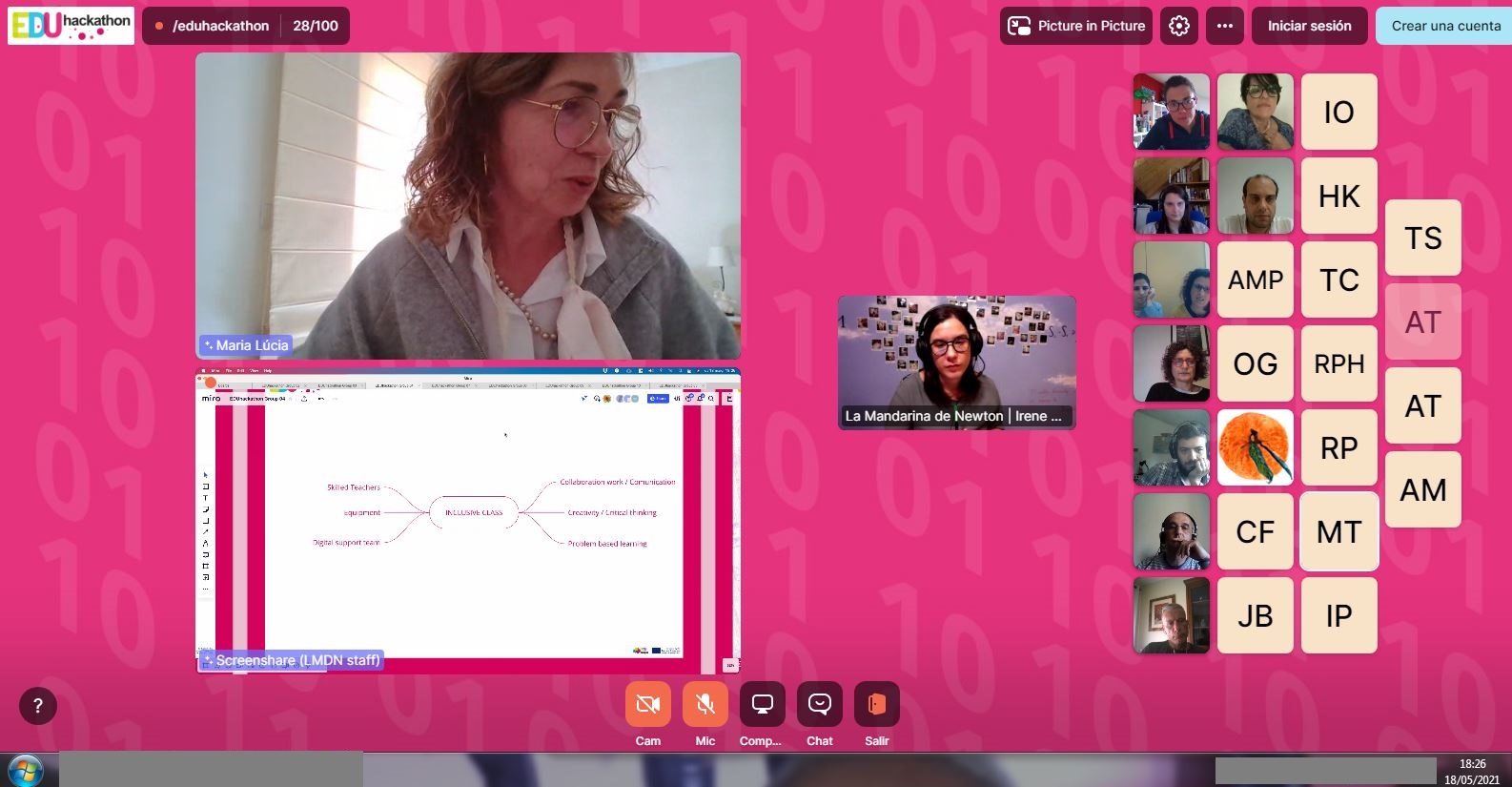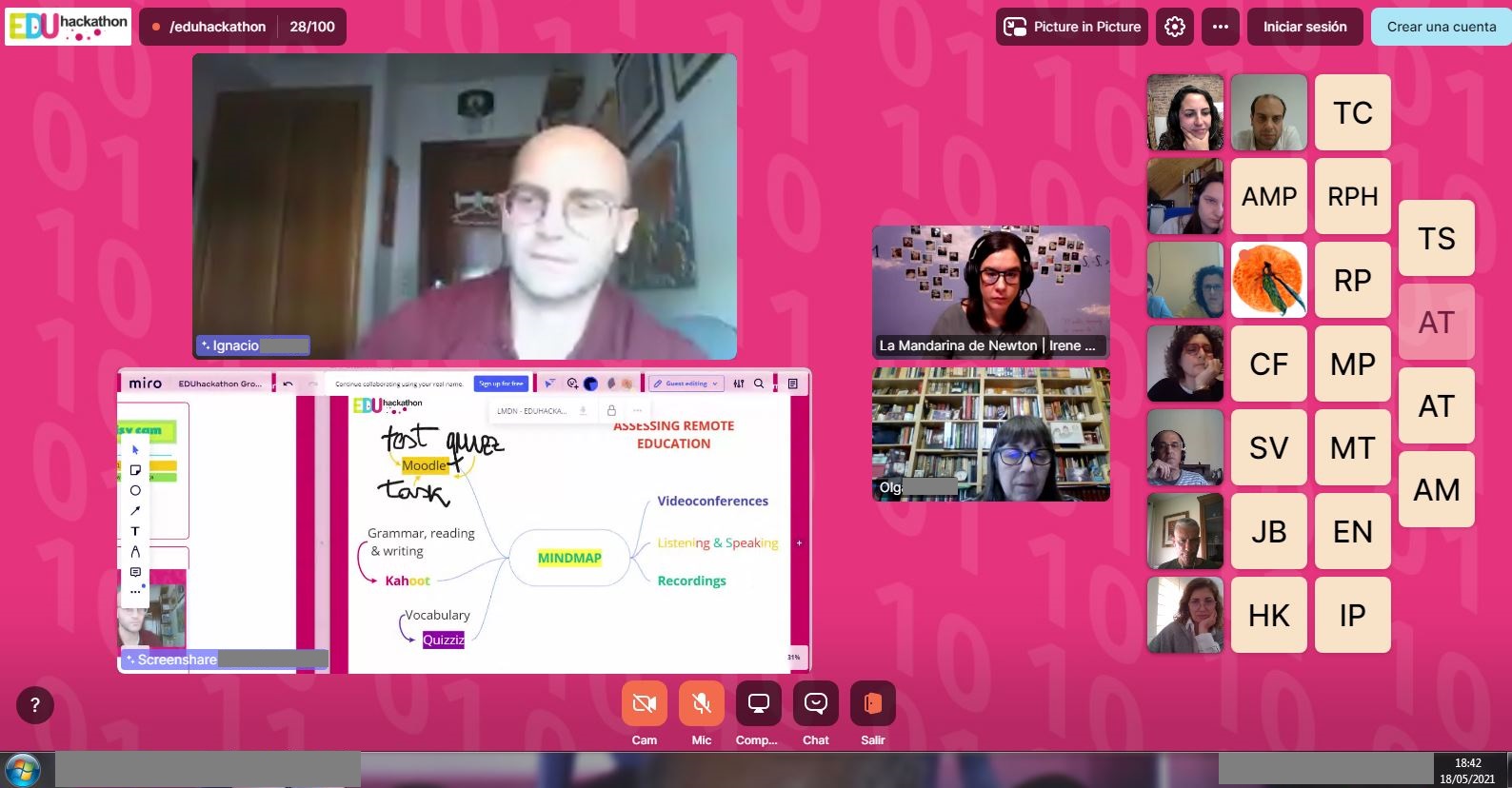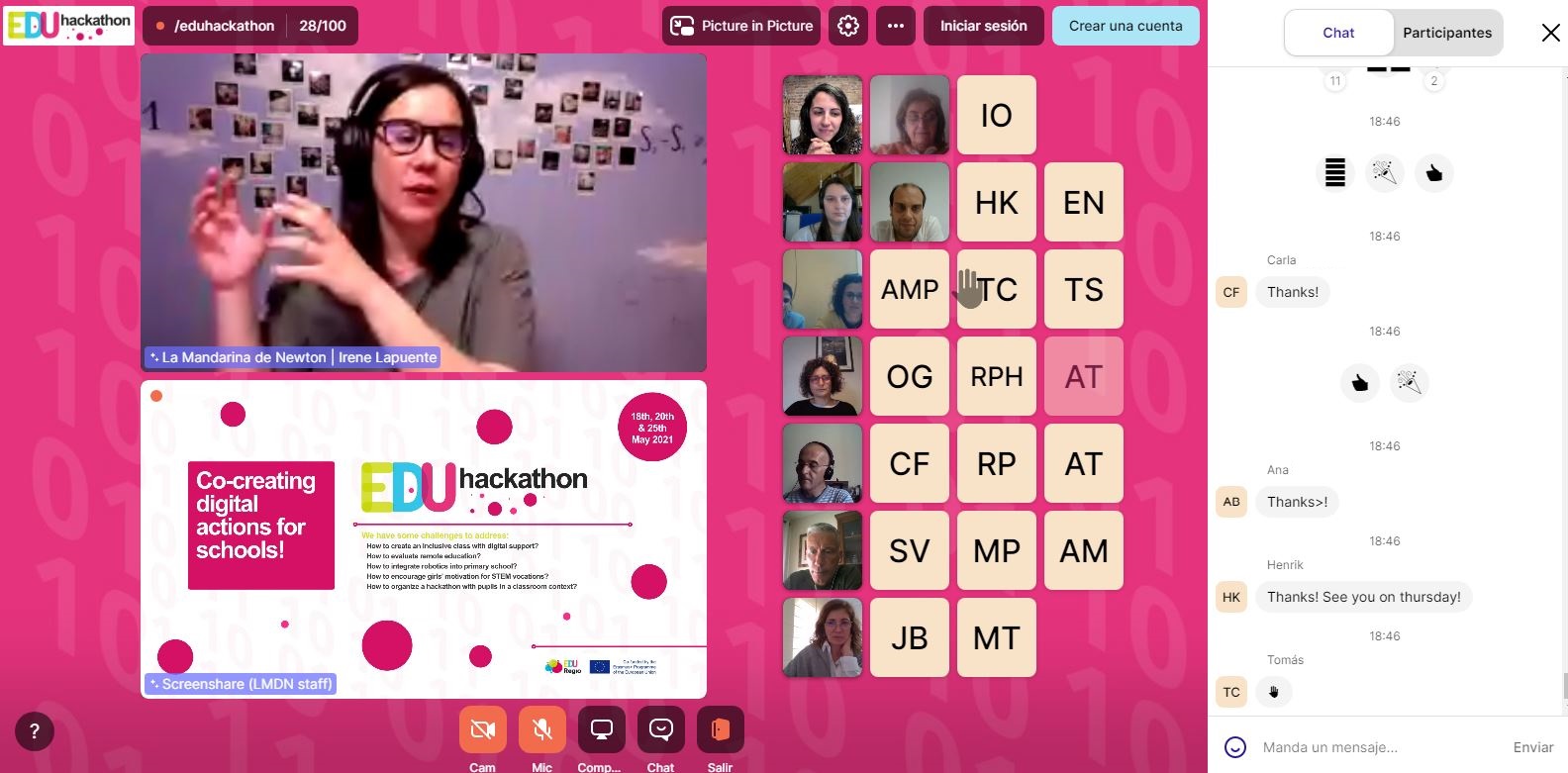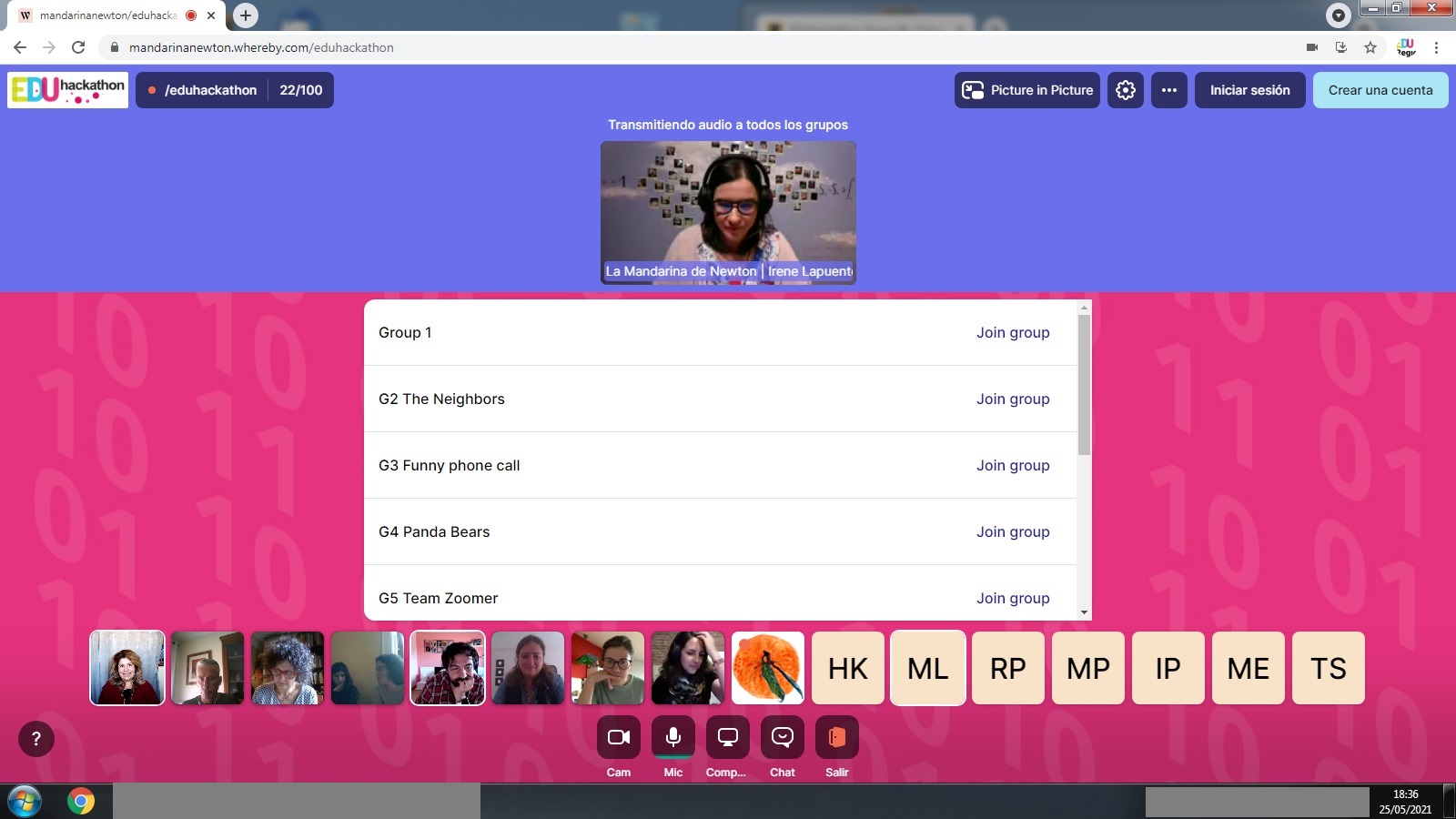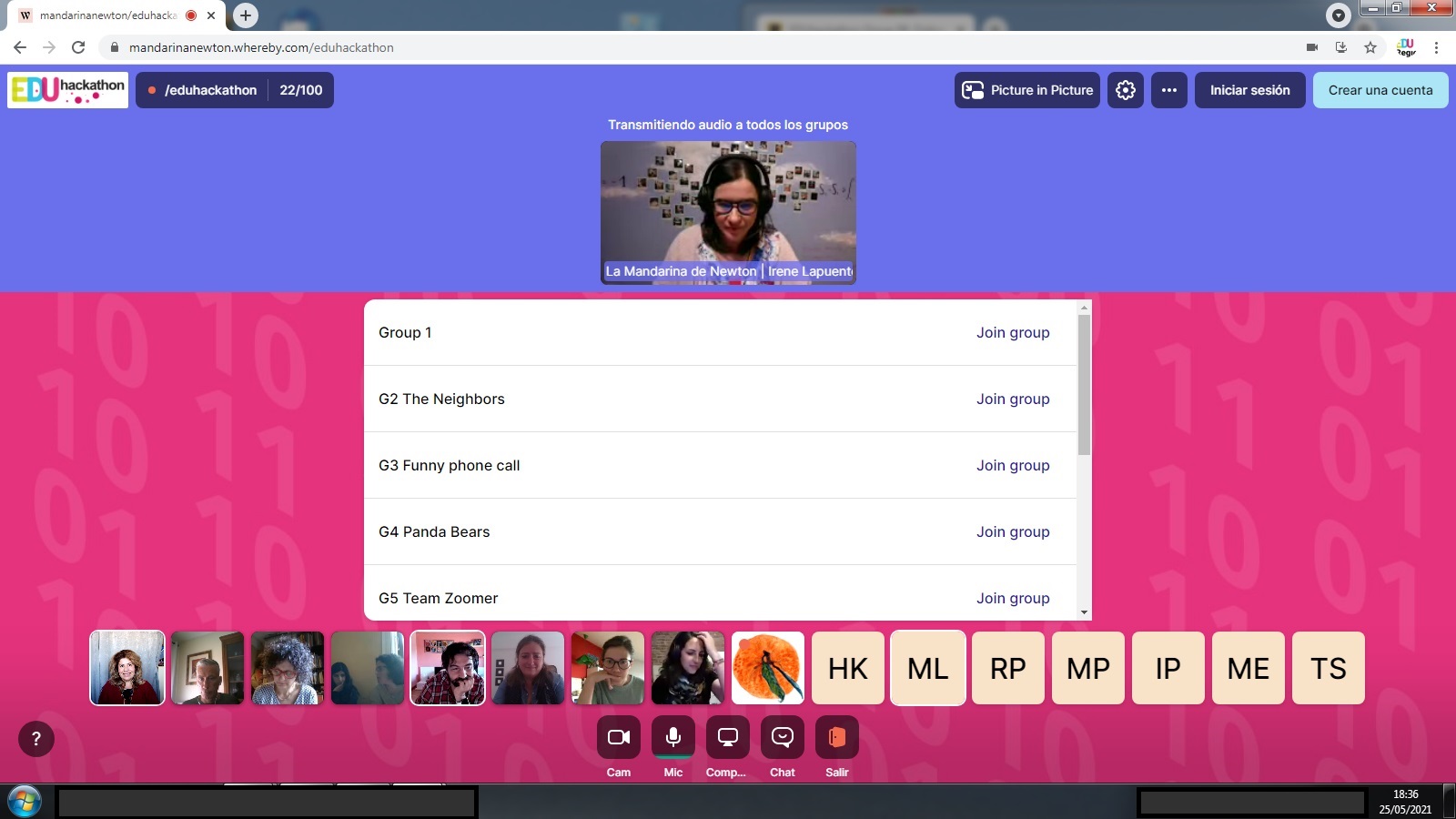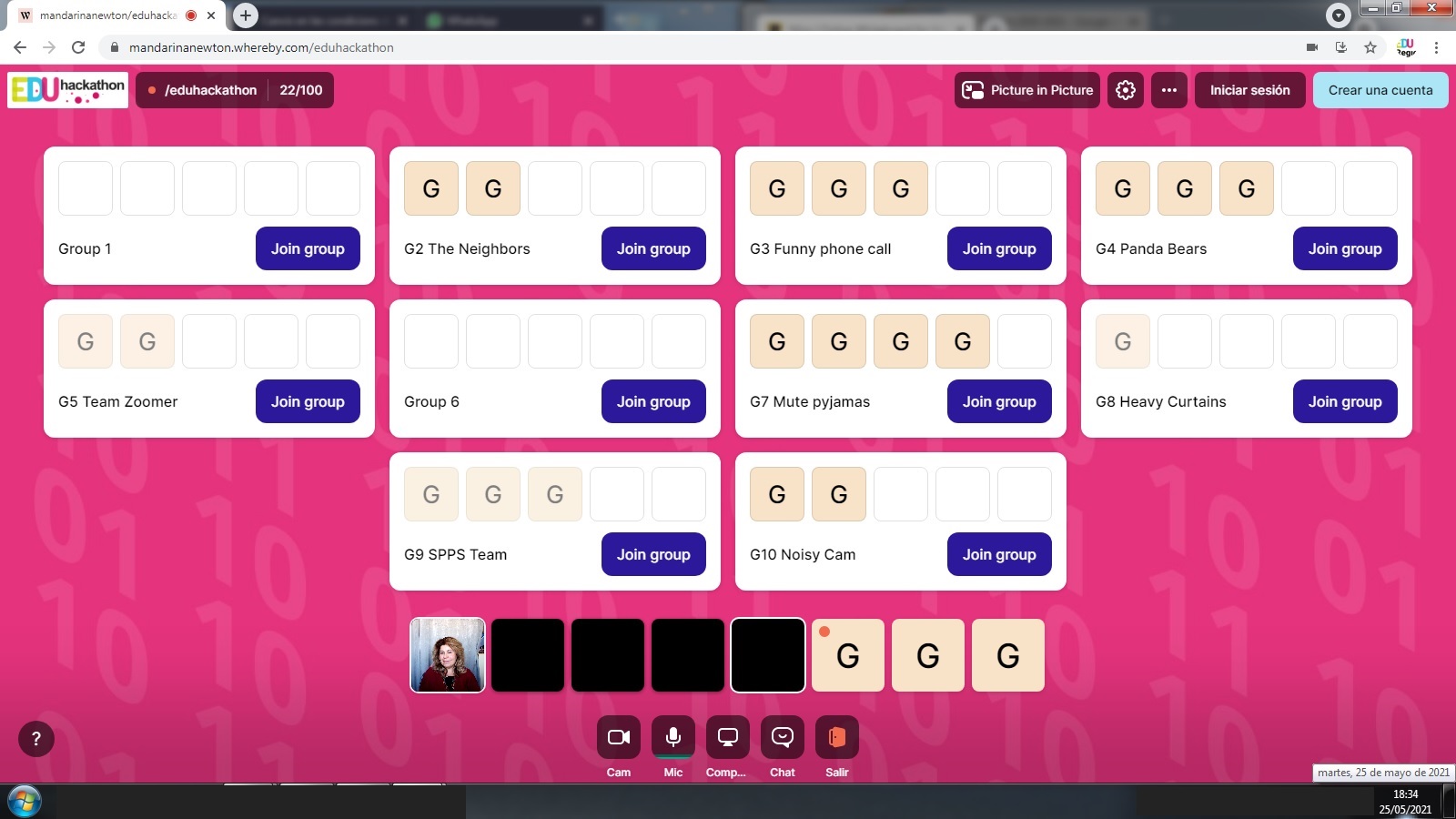EDUHackathon, hacking the future of education.
18th May 2021
Ms. Albalat, Deputy General Director of Research and Digital Culture at Department of Education officially welcomed the session.
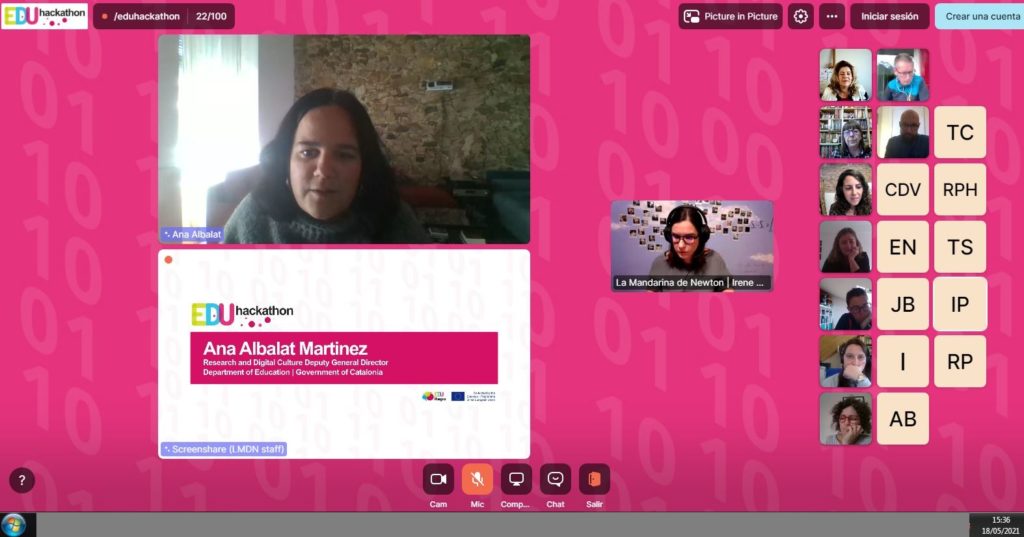
Individual warm-up
An individual warm-up activity set the tone for the session, and helped to get to know participants. It consisted in the choice of a name for the group based on the sharing of fun anecdotes related to online teaching.
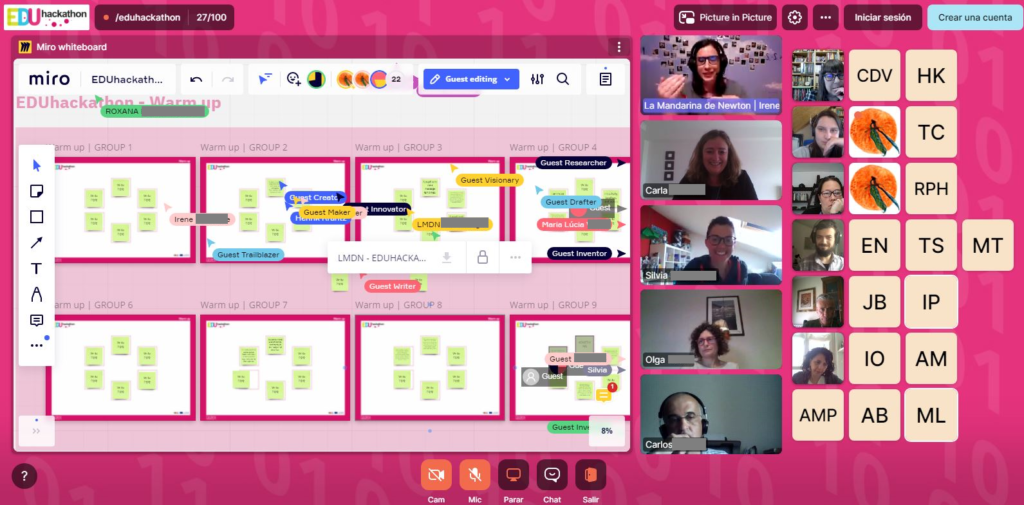
Empathy session
After this, participants got a better idea of the educational context in which they are implementing the results of this EduHackathon by drawing a collaborative mindmap. It was an empathy session to bear in mind the targets of their learning scenario.
In the last part of the first session participants shared their first impressions and presentations in a plenary session.
20th May 2021
Teams were working offline in-between sessions. They shared their experience with the rest of teams in a plenary session.
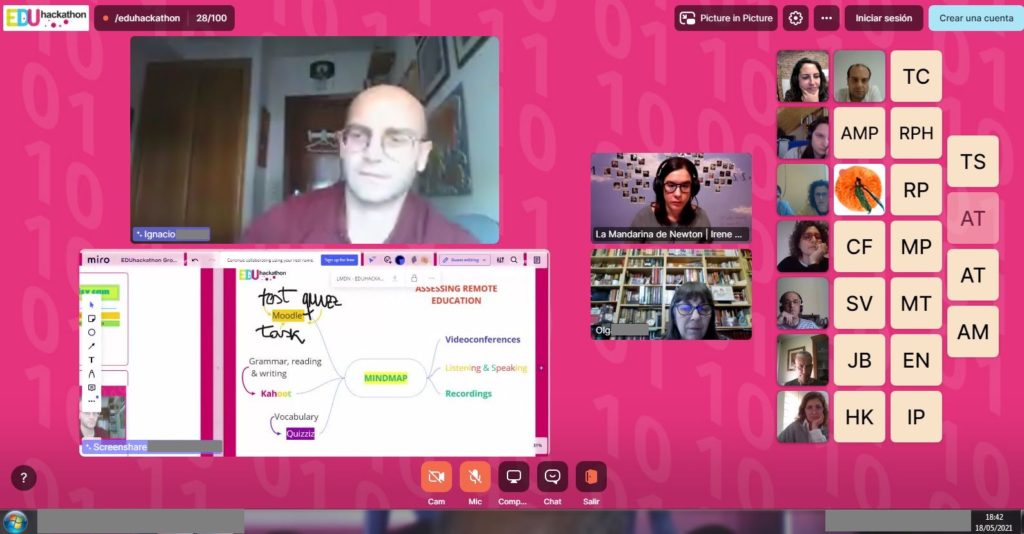
Problem framing
Teams analyzed problems and opportunities related to the challenge of their choice by the use of a collaborative virtual poster according to Design thinking methodology. They identified points of interest as the starting point to tackle the development of the learning scenario.
Ideation
After this, they selected the three main action lines among the points of interest and developed them into six similar ideas, but with different implementations. A quick agreement provided the most suitable idea to prototype.
Fast prototyping
A graphic visualization of the idea helped to develop the prototype. A two-minute presentation of each one resumed the brainstorming and definition of challenges into ideas, suitable to be landed in a classroom.
The groups developed their ideas in-between sessions.
25th May 2021
The teams introduced their prototypes and evolutions in a plenary session.
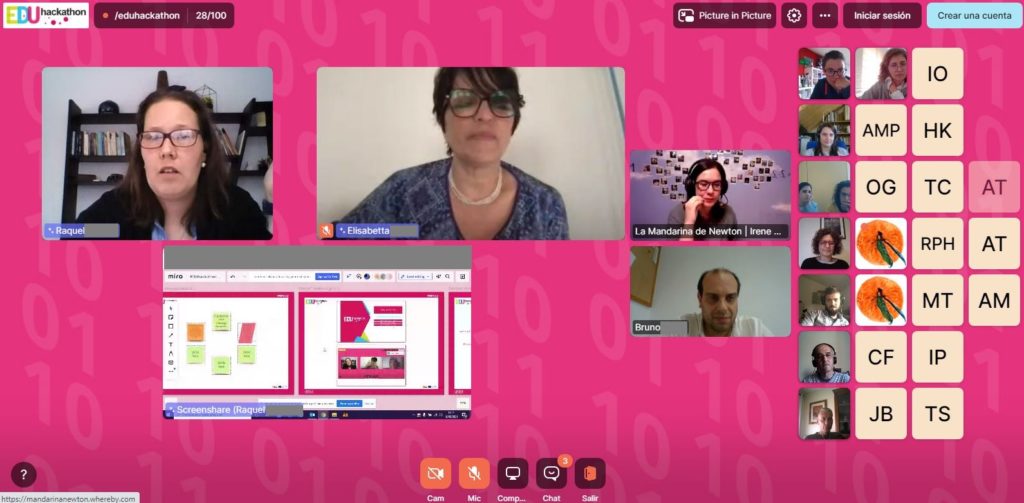
Pollination
All teams were divided into smaller groups that travelled across the different breakout rooms to give feedback to their peers.
Refinement
Participants shared good ideas detected in other teams and prototypes, as well as difficulties and suggestions of improvement.
Storytelling
Each team designed a layout to explain their own projects and recorded a short video. After this, they sent a tweet.
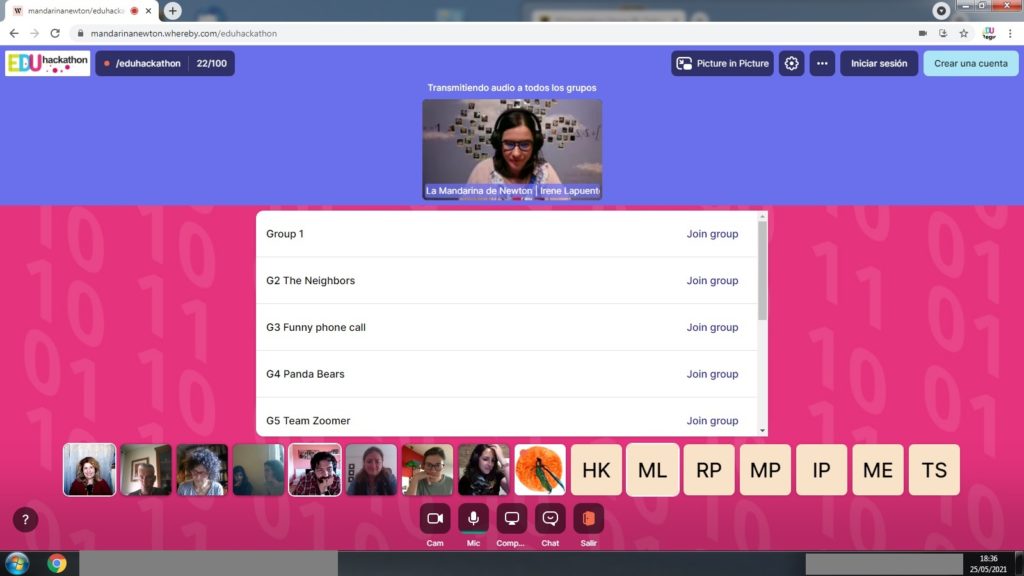
Share of videos
Participants shared videos in front of their fellows.
Questions and answers
All teams felt the community by listening all team’s presentations and proposed questions.
Post event
A official in-service training certificate issued by Departament d’Educació de la Generalitat de Catalunya is delivered in the month of september, and also a complimentary merchandising bag for participants.
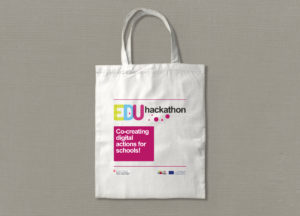
Evaluation highlights
- Completion rate of the three sessions was 85%.
- A very good, reliable platform to support interactions, and engaging dynamics are essential to keeping students motivated.
- Teachers’ choice of challenge was evaluation and inclusion, while advisors’ was organisation of hackathons in schools. This gives an outlook on the new reality in the classroom, after school lockdowns, and also about the needs on teacher training.
EduHackathons were something new for the majority of the participants, 92% of them.
For over 60% of them, the EduHackathon was what they had imagined, although they didn’t have previous experients. However, the majority of participants who didn’t know what to expect or didn’t imagine something like that felt satisfied with the proposal. Participants have shared
with us comments such as:
“It was better than I thought.”
“I think it was more than I expected. It was a really engaging and enriching experience! I had the opportunity of working togethe with amazing people from different countries in Europe and I’ve learned a lot from them. We shared experiences from our school contexts and learning scenarios. I enjoyed it a lot! Using a creative and digital approach to design a learning scenario, with my fantastic team, just great!”
“It was even beyond my expectations, the onsite dynamics and interactions were very well replicated online.”
“EDUHackathon was very dynamic and interesting. The teamwork with professionals from different countries made the experience very rich.”
“It was an opportunity to exchange ideas with colleagues from other countries”
7/7/2021 Multiplier event
As planned in the application, the multiplier event led by GENCAT included a short teaser of a online hackathon to assess and receive feedback about the School&Classroom kits. 40 registered participants coming from all Europe had the opportunity to participate in a very engaging, interactive session.

Link to full evaluation report
